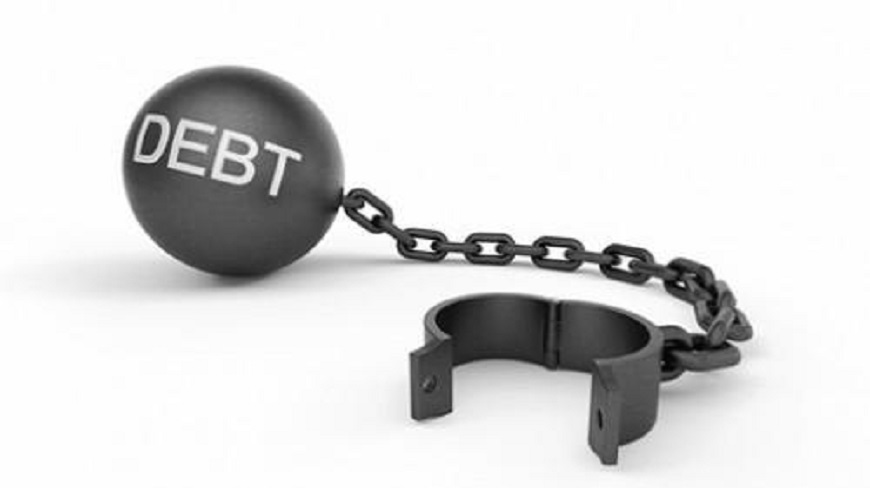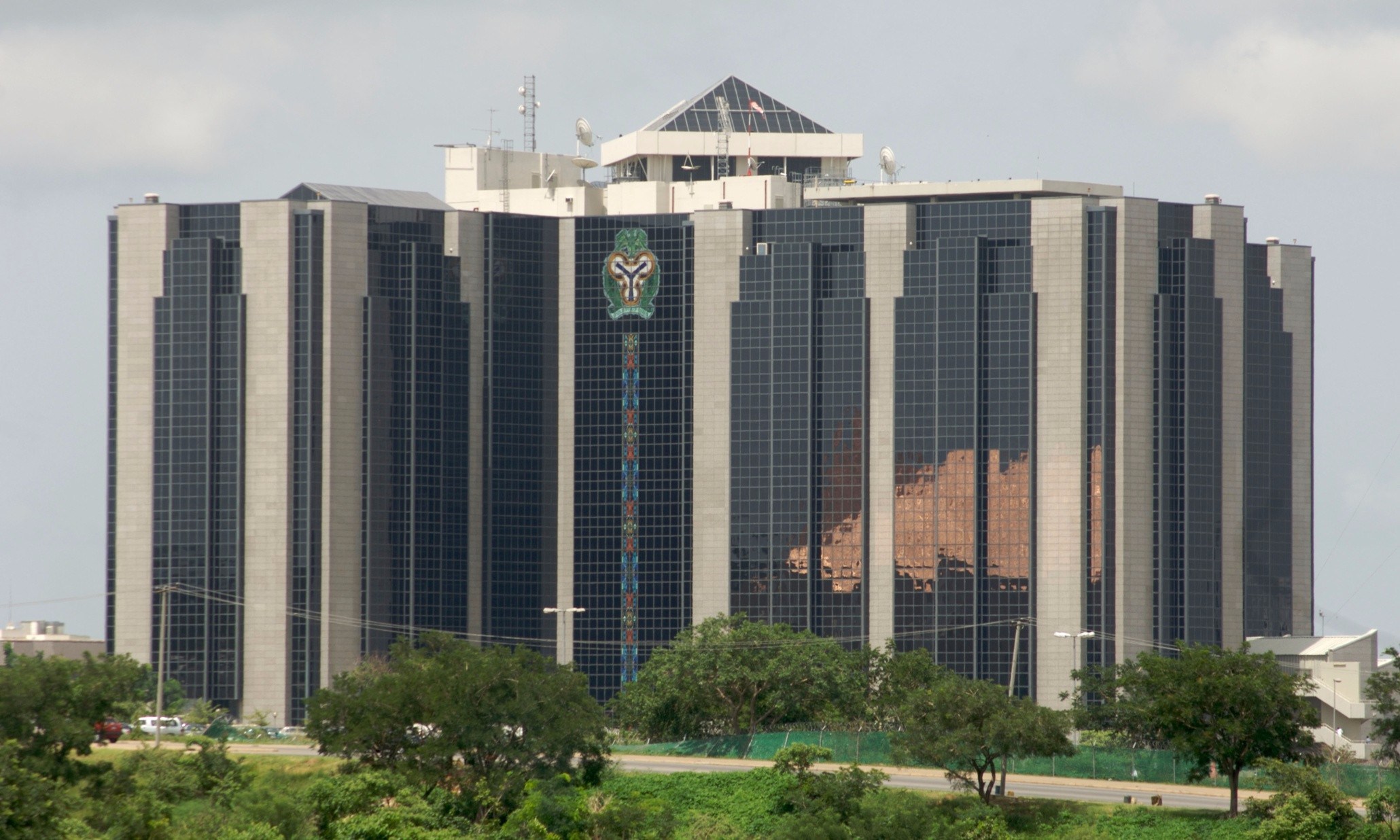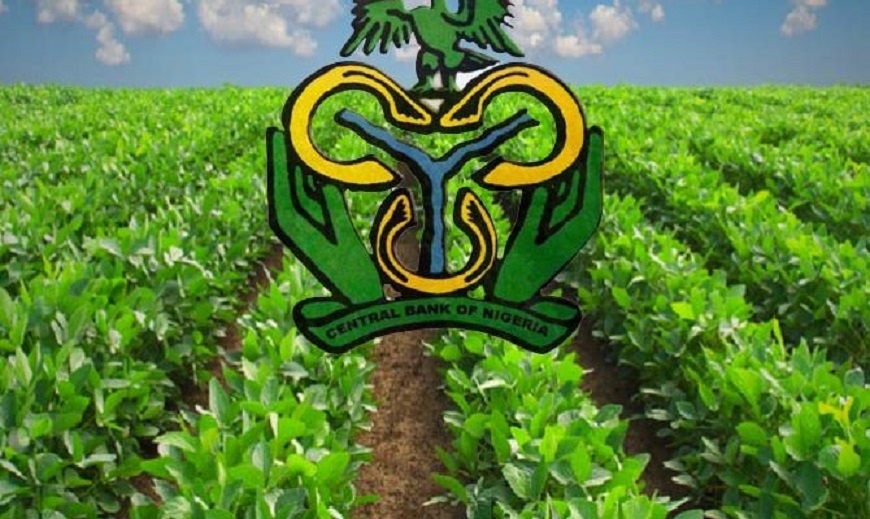Economy
Nigeria’s Debt Jumps 75.3% to N87.38trn in Q2 CBN Loan Securitization, Naira Float

By Adedapo Adesanya
The Debt Management Office (DMO) has said Nigeria’s total public debt rose by 75.3 per cent to N87.38 trillion at the end of the second quarter of 2023 against N49.85 trillion recorded in the first quarter of the year.
In the report published by the debt office on Thursday, there was a N37.53 trillion rise in the country’s internal and external debt in three months, the final quarter of President Muhammadu Buhari’s tenure.
The rise came as the country securitised the N22.71 trillion Ways and Means Advances of the Central Bank of Nigeria to the federal government. The overdraft is a loan facility through which the CBN finances the shortfalls in the government’s budget.
This also happened as the country liberalised the exchange rate in mid-June, a move that saw the Naira drop by over 40 per cent.
The DMO stated, “Nigeria’s total public debt stock as at June 30, 2023, was N87.38 trillion ($113.42 billion). It comprises the total domestic and external debts of the Federal Government of Nigeria, the thirty-six states, and the Federal Capital Territory.
“The major addition to the Public Debt Stock was the inclusion of the N22.712 trillion securitized FGN’s Ways and Means Advances.”
The statement also noted that other additions to the debt stock were new borrowings by the federal government and the sub-nationals from local and external sources.
It added, “The reforms already introduced by the present administration and those that may emerge from the recommendations of the Fiscal Reform and Tax Policies Committee are expected to impact debt strategy and improve debt sustainability.”
Business Post had earlier reported that the DMO projected that Nigeria’s public debt burden may hit N77 trillion following the National Assembly’s approval of the request by former President Muhammadu Buhari to restructure the CBN’s Ways and Means Advances.
The Director-General of the DMO, Ms Patience Oniha, during a public presentation of the 2023 budget organised by the former Minister of Finance, Budget and National Planning, Mrs Zainab Ahmed, noted that the debt would be N70 trillion without N5 trillion new borrowing and N2 trillion promissory notes.
However, the latest data showed that the current debt stock of N87.38 trillion exceeded the DMO’s projection (N77.33 trillion) by N10.38 trillion.
Further breakdown showed that Nigeria has a total domestic debt of N54.13 trillion and a total external debt of N33.25tn.
While the domestic debt makes up 61.95 per cent of total debt, the external makes up 38.05 per cent.
The domestic debt rose by 79.18 per cent from N30.21 trillion, while the external debt rose by 69.28 per cent from N19.64tn in Q1 2023.
In its 2022 Debt Sustainability Analysis Report, the DMO warned that the Federal Government’s projected revenue of N10 trillion for 2023 could not support fresh borrowings.
According to the office, the projected government’s debt service-to-revenue ratio of 73.5 per cent for 2023 is high and a threat to debt sustainability.
It noted that the government’s current revenue profile could not support higher levels of borrowing.
DMO has tasked the country to desist from borrowing and urged the government to encourage the private sector to fund some of the capital projects that were being financed from borrowing through the public-private partnership schemes.
It added that the federal government can reduce borrowing through the privatisation and/or sale of government assets.
Over the years, Nigeria’s low revenue generation has pushed the government to more borrowing.
However, President Bola Tinubu recently expressed his administration’s commitment to break the cycle of overreliance on borrowing for public spending and the resultant burden of debt servicing it places on the management of limited government revenues.
According to the Minister of Finance, Mr Wale Edun, the federal government has no intention to borrow from any local or foreign organisation as it is interested in boosting taxes and other revenue outlets.
“The federal government is not in a position to borrow at this time. Rather, the emphasis has to be on creating a stable macroeconomic environment. Stable inflation, stable exchange rate, an environment within which people can come and invest and thereby increase production and further grow the economy. Improve and create jobs and reduce poverty,” he said at the last Federal Executive Council (FEC) in August.
Economy
NGX Market Cap Surpasses N110trn as FY 2025 Earnings Impress Investors

By Dipo Olowookere
Investors at the Nigerian Exchange (NGX) Limited have continued to show excitement for the full-year earnings of companies on the exchange so far.
On Friday, Customs Street further appreciated by 1.01 per cent as more organization released their financial statements for the 2025 fiscal year.
During the session, traders continued their selective trading strategy, with the energy sector going up by 2.47 per cent at the close of business despite profit-taking in the banking counter, which saw its index down by 0.11 per cent.
Yesterday, the insurance space grew by 2.16 per cent, the industrial goods segment expanded by 1.70 per cent, and the consumer goods industry jumped by 0.42 per cent.
Consequently, the All-Share Index (ASI) increased by 1,722.13 points to 171,727.49 points from 170,005.36 points, and the market capitalisation soared by N1.106 trillion to N110.235 trillion from the N109.129 trillion it ended on Thursday.
Business Post reports that there were 59 appreciating stocks and 19 depreciating stocks on Friday, representing a positive market breadth index and strong investor sentiment.
The trio of Omatek, Deap Capital, and NAHCO gained 10.00 per cent each to sell for N2.64, N6.82, and N136.40 apiece, as Zichis and Austin Laz appreciated by 9.98 per cent each to close at N6.72 and N5.40, respectively.
Conversely, The Initiates depreciated by 9.74 per cent to N19.45, DAAR Communications slumped by 7.32 per cent to N1.90, United Capital crashed by 6.55 per cent to N18.55, Coronation Insurance lost 5.71 per cent to quote at N3.30, and First Holdco shrank by 5.53 per cent to N47.00.
The activity chart showed an improvement in the activity level, with the trading volume, value, and number of deals up by 33.77 per cent, 93.27 per cent, and 10.63 per cent, respectively.
This was because traders transacted 953.8 million shares worth N43.1 billion in 51,005 deals compared with the 713.0 million shares valued at N22.3 billion traded in 46,104 deals a day earlier.
Fidelity Bank was the most active with 92.4 million units sold for N1.8 billion, Chams transacted 69.2 million units valued at N310.9 million, Deap Capital exchanged 59.1 million units worth N382.7 million, Access Holdings traded 57.2 million units valued at N1.3 billion, and Tantalizers transacted 48.6 million units worth N228.2 million.
Economy
Naira Retreats to N1,366.19/$1 After 13 Kobo Loss at Official Market

By Adedapo Adesanya
The value of the Naira contracted against the United States Dollar on Friday by 13 Kobo or 0.01 per cent to N1,366.19/$1 in the Nigerian Autonomous Foreign Exchange Market (NAFEX) from the previous day’s value of N1,366.06/$1.
According to data from the Central Bank of Nigeria (CBN), the Nigerian currency also depreciated against the Pound Sterling in the same market window yesterday by N2.37 to N1,857.75/£1 from the N1,855.38/£1 it was traded on Thursday, and further depleted against the Euro by 57 Kobo to close at N1,612.52/€1 versus the preceding session’s N1,611.95/€1.
In the same vein, the exchange rate for international transactions on the GTBank Naira card showed that the Naira lost N8 on the greenback yesterday to N1,383/$1 from the previous day’s N1,375/$1 and at the black market, the Nigerian currency maintained stability against the Dollar at N1,450/$1.
FX analysts anticipate this trend to persist, primarily influenced by increasing external reserves, renewed inflows of foreign portfolio investments, and a reduction in speculative demand.
In the short term, stability in the FX market is expected to continue, supported by policy interventions and improving market confidence.
Nigeria’s foreign reserves experienced an upward trajectory, increasing by $632.38 million within the week to $46.91 billion from $46.27 billion in the previous week.
The Dollar appreciation this week appears to be largely technical, serving as a correction to the substantial losses experienced from mid- to late January.
Meanwhile, the cryptocurrency market slightly appreciated, with Bitcoin (BTC) climbing near $68,000, up nearly 5 per cent since hitting $60,000 late on Thursday after investor confidence in crypto’s utility as a store of value, inflation hedge, and digital currency faltered.
The sell-off extended beyond crypto, with silver plunging 15 per cent and gold sliding more than 2 per cent. US stocks also fell.
The latest recoup saw the price of BTC up by 4.7 per cent to $67,978.96, as Ethereum (ETH) appreciated by 6.3 per cent to $2,021.10, and Ripple (XRP) surged by 9.5 per cent to $1.42.
In addition, Solana (SOL) grew by 7.3 per cent to $85.22, Cardano (ADA) added 6.1 per cent to trade at $0.2683, Dogecoin (DOGE) expanded by 5.4 per cent to $0.0958, Litecoin (LTC) rose by 5.2 per cent to $53.50, and Binance Coin (BNB) jumped by 2.3 per cent to $637.79, while the US Dollar Tether (USDT) and the US Dollar Coin (USDC) traded flat at $1.00 each.
Economy
Oil Prices Climb on Worries of Possible Iran-US Conflict

By Adedapo Adesanya
Oil prices settled higher on Friday as traders worried that this week’s talks between the US and Iran had failed to reduce the risk of a military conflict between the two countries.
Brent crude futures traded at $68.05 a barrel after going up by 50 cents or 0.74 per cent, and the US West Texas Intermediate (WTI) crude futures finished at $63.55 a barrel due to the addition of 26 cents or 0.41 per cent.
Iran and the US held negotiations in Muscat, the capital of Oman, on Friday to overcome sharp differences over Iran’s nuclear programme.
It was reported that the talks had ended with Iran’s foreign minister saying negotiators will return to their capitals for consultations and the talks will continue.
Regardless, the meeting kept investors anxious about geopolitical risk, as Iran wanted to stick to nuclear issues while the US wanted to discuss Iran’s ballistic missiles and support for armed groups in the region.
Any escalation of tension between the two nations could disrupt oil flows, since about a fifth of the world’s total consumption passes through the Strait of Hormuz between Oman and Iran.
Saudi Arabia, the United Arab Emirates, Kuwait and Iraq export most of their crude via the strait, as does Iran, which is a member of the Organisation of the Petroleum Exporting Countries (OPEC).
According to Reuters, Iran objected to the presence of any US Central Command (CENTCOM) or other regional military officials, saying that would jeopardise the process.
The current confrontation was sparked by more than two weeks of unrest in Iran that saw authorities launch a deadly crackdown that killed thousands of civilians and shocked the world. As reports of the deaths trickled out of Iran, US President Donald Trump threatened to strike Iran if any of the tens of thousands of protesters arrested were executed.
Meanwhile, Kazakhstan’s planned oil exports could fall by as much as 35 per cent this month via its main route through Russia, as the country’s top oil company, Tengiz oilfield, slowly recovers from fires at power facilities in January.
ING analysts have pointed out Iran’s neighbour, Iraq, and a disagreement with the US as another bullish factor for oil prices. It seems Iraqi politicians favour Mr Nouri al-Maliki as the country’s next Prime Minister, but the US thinks Mr al-Maliki is too close to Iran. President Trump has already threatened the oil producer with consequences if he emerges as PM.
-

 Feature/OPED6 years ago
Feature/OPED6 years agoDavos was Different this year
-
Travel/Tourism9 years ago
Lagos Seals Western Lodge Hotel In Ikorodu
-

 Showbiz3 years ago
Showbiz3 years agoEstranged Lover Releases Videos of Empress Njamah Bathing
-

 Banking8 years ago
Banking8 years agoSort Codes of GTBank Branches in Nigeria
-

 Economy3 years ago
Economy3 years agoSubsidy Removal: CNG at N130 Per Litre Cheaper Than Petrol—IPMAN
-

 Banking3 years ago
Banking3 years agoSort Codes of UBA Branches in Nigeria
-

 Banking3 years ago
Banking3 years agoFirst Bank Announces Planned Downtime
-

 Sports3 years ago
Sports3 years agoHighest Paid Nigerian Footballer – How Much Do Nigerian Footballers Earn














